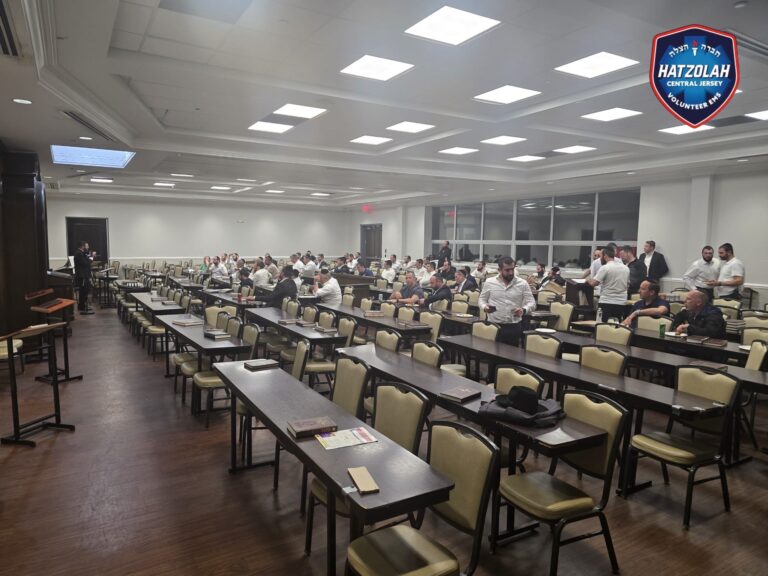As the school year winds down, Jewish families across the country are turning their attention to summer plans. Camp registration, bungalow season preparations, and long days outdoors are all on the horizon. At the same time, many schools and communities are revisiting modesty guidelines for students, including expectations for boys during warm-weather activities.
While modesty remains a central value in Torah observance, these conversations are beginning to reflect a deeper awareness of emotional and psychological needs. Mental health has become a more open topic in the frum world, and that awareness is now expanding into areas like self-image, personal comfort, and the emotional impact of physical development.
This shift is especially important when we think about how boys experience modesty during the summer.
When Physical Discomfort Becomes Emotional
For many boys, the idea of summer brings excitement. They look forward to sports, swimming, and carefree time outdoors with friends. But for others, these activities bring anxiety. While girls’ challenges around body image are more commonly discussed, many boys also struggle with how they feel in their own skin.
Some boys are dealing with weight fluctuations, delayed puberty, or early development. Others may feel insecure because of naturally occurring conditions like excess chest tissue, which can develop during adolescence and often resolves with time. These changes are not rare, but they can be deeply isolating.
The pressure to remove a shirt for swimming or to change clothes in front of others can create quiet distress that adults may not notice. Without a space to talk about what they are going through, boys may withdraw, avoid activities, or feel ashamed. These moments can shape how they view themselves for years to come.
Dr. Shektman of the Gynecomastia Center of Boston notes, “We often see teenage boys who have spent years avoiding pools, camps, or gym class. For them, this is not about appearance. It is about comfort, confidence, and feeling normal among their peers.”
Preserving Modesty While Protecting Dignity
Modesty is not only about following a dress code. It is also about upholding personal dignity and respecting the individual needs of others. For boys who are uncomfortable with their physical development, modesty expectations can become a source of fear rather than pride.
This is not a matter of abandoning standards. Rather, it is about applying them with compassion. Camps and schools that promote sensitivity and offer flexibility often see better emotional outcomes for their students. Simple measures, like allowing swim shirts, offering private changing areas, or giving boys the option to speak privately with a staff member, can make a significant difference.
These actions send a quiet but powerful message.
What Parents and Educators Can Watch For
Some boys will never mention that they feel uncomfortable. That is why adults need to stay alert to small signs. A boy who suddenly avoids physical activities, insists on wearing multiple layers, or becomes withdrawn during summer planning may be silently struggling.
Before summer starts, parents can gently check in with their sons. Ask how they feel about going to camp or participating in sports. Listen without judgment. If your child expresses discomfort with clothing or swimming, try to understand the reason behind it rather than dismissing it.
In many cases, the solution may be as simple as new clothing or a conversation with a staff member. In others, a pediatrician or specialist may be able to offer insight or treatment options if a physical condition is causing distress.
Building a Healthier Summer Environment
As camps finalize their packing lists, staff training, and daily schedules, this is a valuable moment to reinforce both modesty and emotional support. A healthy summer environment is one that encourages growth in all forms. This includes helping boys grow into themselves without shame or silence.
Some helpful practices include:
-
Providing private changing spaces for campers who may need them
-
Allowing modest swimwear alternatives that keep boys comfortable and confident
-
Training counselors to recognize signs of emotional discomfort and know when to intervene
-
Including space on intake forms for parents to share concerns that may not be visible
These steps are small, but the impact is lasting. When boys feel seen and supported, they are more likely to engage, grow, and return home with confidence and joy.
Moving Forward as a Community
The Torah teaches that every person is created b’tzelem Elokim. That includes our children, even as they navigate uncomfortable stages of growth and change. When we acknowledge their emotional challenges without shame, we reflect that divine dignity in the way we care for them.
Modesty and mental health are not opposing values. They work best when they support one another. By creating space for quiet struggles and offering solutions rooted in empathy, our communities can give boys the strength to move forward with pride in who they are becoming.
Not every challenge is visible, and not every solution is loud. But when the warm weather returns and our children run toward summer with excitement instead of fear, we will know we have done something right.










